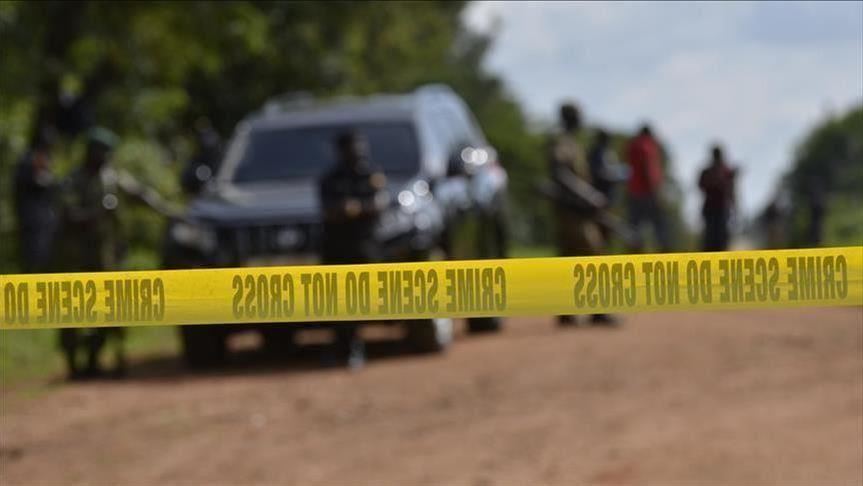
KAMPALA, Uganda
Heightened anger from those who lost their loved ones and tension followed Rwandan officials handing over the body of another Ugandan national shot dead by Rwanda National Police officers.
Two Rwandans were also reportedly shot with the Ugandan, with Kigali saying they were smugglers who clashed with police intercepting them.
Once close allies, tensions between the East African neighbors are nearing breaking point as such killings continue, especially after Kigali closed its border with Uganda last year. For non-authorized passage, Rwandan security forces have used lethal force against civilians from either country, accusing them of smuggling.
The latest death occurred only days after Uganda freed from its custody nine Rwandans facing charges for illegal possession of firearms, with Uganda's Minister of Foreign Affairs Sam Kutesa saying Kampala had withdrawn charges in line with a recent agreement between the two countries.
"Let me set the record straight. These people were not arbitrary arrested. It was an act of goodwill and we hope it will be reciprocated," said Kutesa.
An official from the Rwandan side, minister of state in charge of East Africa Olivier Nduhungirehe, said: "The release of nine Rwandan citizens who were arbitrarily arrested and illegally detained in Uganda is indeed a step in the right direction. However, nine is not all. Hundreds of our compatriots in the same situation in Uganda must be released."
Last August, the presidents of both Rwanda and Uganda held a meeting chaired by Angolan President Joao Lourenco in Angola's capital Luanda and signed a memorandum of understanding in a bid to ease tensions.
Both presidents agreed on several issues including immediately opening the borders shared by both countries. After the agreement in Luanda, representatives from both countries held follow-up meetings on what had been agreed during the signing of the pact. Both delegations failed to agree on anything and referred the matters to their respective presidents to decide the next course of action. Since then, progress towards normalizing relations has been slow.
Tensions arise
Frosty relations between the two countries became more pronounced in February 2019, when Rwanda closed its borders with Uganda and issued a travel advisory strongly warning its citizens against traveling to Uganda.
This move devastated the lives of thousands of people whose livelihoods hinged on the free flow of goods and services across the frontier. Communities around the Rwanda-Uganda border have crossed the boundary by foot for generations to access hospitals, attend schools, conduct business and visit relatives, while many share common ethnicity and speak similar languages.
Uganda also accuses Rwanda of infiltrating its key security agencies, with authorities saying some Rwandan security officials had direct and indirect contact with key strategic security personnel in Uganda who have sent information outside of official channels. Though arrests have reportedly been made, the number is "not clear."
In 2017, retired Rwandan army officer Rene Rutagungira was arrested in the Ugandan capital Kampala and charged for allegedly using a pistol and grenades to abduct Joel Mutabazi, a former bodyguard of Rwanda's President Paul Kagame. Rutagungira then allegedly delivered Mutabazi to Rwanda, where he was charged with terrorism and sentenced to life in prison. Kampala had granted Mutabazi refugee status.
Meanwhile, Rwanda insists that the accused had been on regular travel to the country, while Uganda's Minister of Foreign Affairs Sam Kutesa alleged that Kigali had sent a list of its nationals in detention it wanted back, adding that many had already been repatriated. Rutagungira was among the nine Uganda recently released and returned to its southern neighbor.
For its part, Rwanda accuses Uganda of being linked to hostile groups, including the Democratic Forces for the Liberation of Rwanda (FDLR) -- an armed rebel group operating in Eastern Democratic Republic of Congo and the Rwanda National Congress (RNC), which is a Rwandan Opposition group.
Both countries deny the other's accusations.
Near breaking point
President Kagame of Rwanda and President Museveni of Uganda were once close allies but the tension between the countries and "close" allies seem to be breaking to near irretrievable levels.
Uganda has so far lost five citizens at the hands of Rwandan security forces, and communities who depend on the border for livelihood continue to count losses arising out of a dispute that has damaged business.
Fixing this with the required urgency may no longer be a matter the two presidents can resolve.
Anadolu Agency website contains only a portion of the news stories offered to subscribers in the AA News Broadcasting System (HAS), and in summarized form. Please contact us for subscription options.







